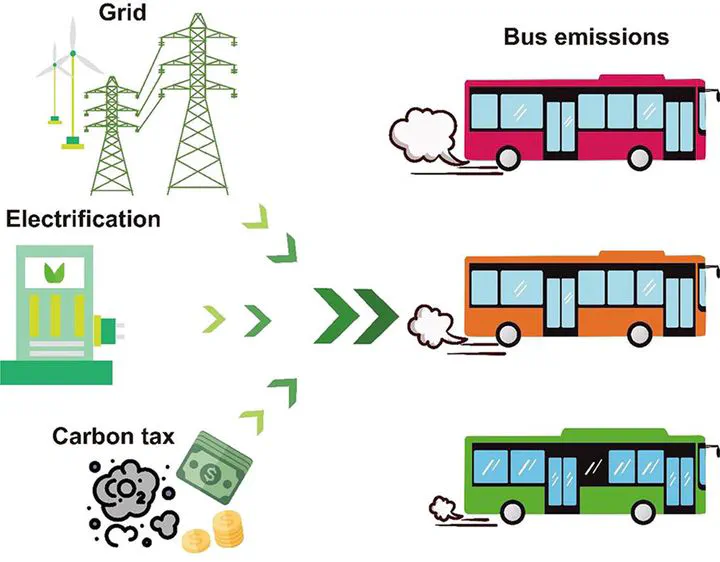Achieving urban net-zero targets through regionalized electric bus penetration and energy transition

Abstract
The electrification of public transit is one of the key actions in the transportation sector. This study proposed an innovative framework for analyzing the effectiveness and emission reduction potential of electrifying transit policies. The future energy consumption, GHG emissions, and pollutant emissions of bus fleets in representative Canadian cities were analyzed. Under the high oil price scenarios, this study incorporated the upfront infrastructure costs, the social costs of pollution, and the dynamics of carbon prices and fuel prices, allowing for a comprehensive analysis of carbon reduction costs during transition. Compared to the BAU scenarios, the cumulative GHG emissions from 2019 to 2030 of bus fleet in ESD scenarios in Toronto, Montreal, Edmonton, and Halifax had a reduction of 18.7 %, 30.1 %, 21.3 % and 34.6 %, respectively. The findings have implications for the trade-off management of climate policies at the provincial level and can help understand polycentric governance from multiple resource perspectives.
Type
Publication
Transportation Research Part D: Transport and Environment